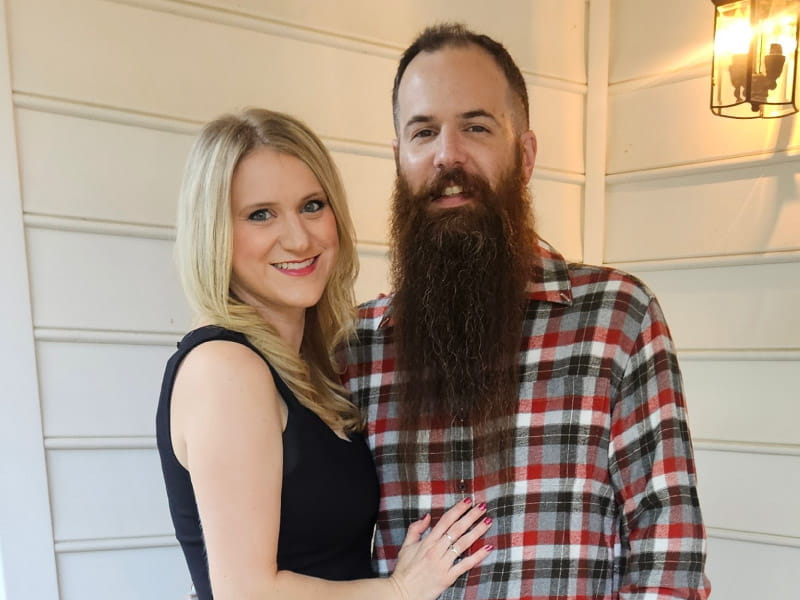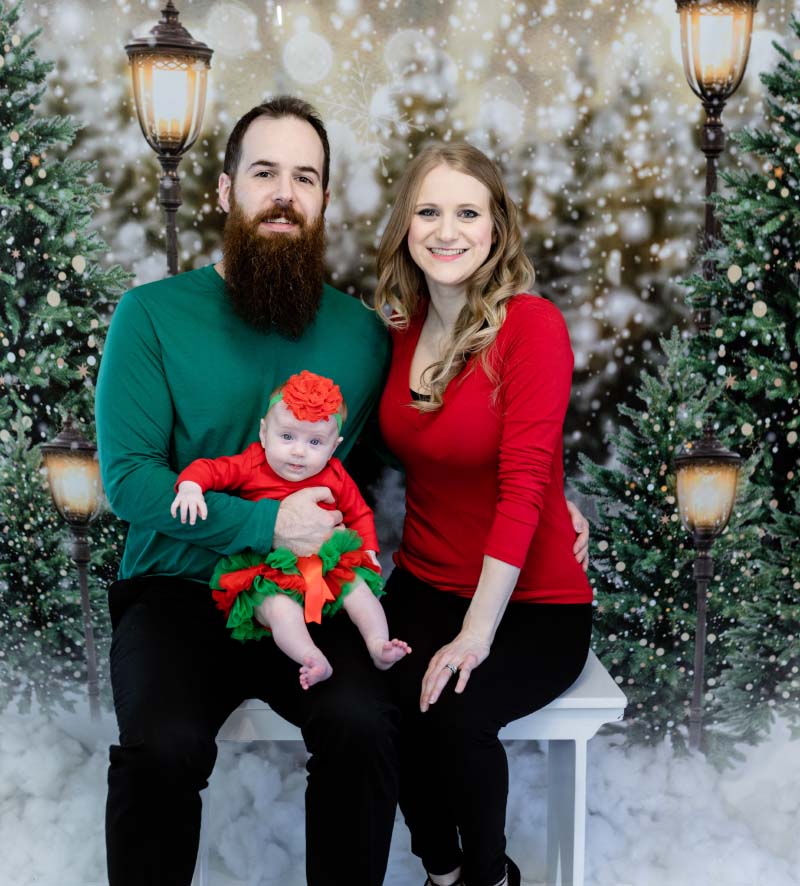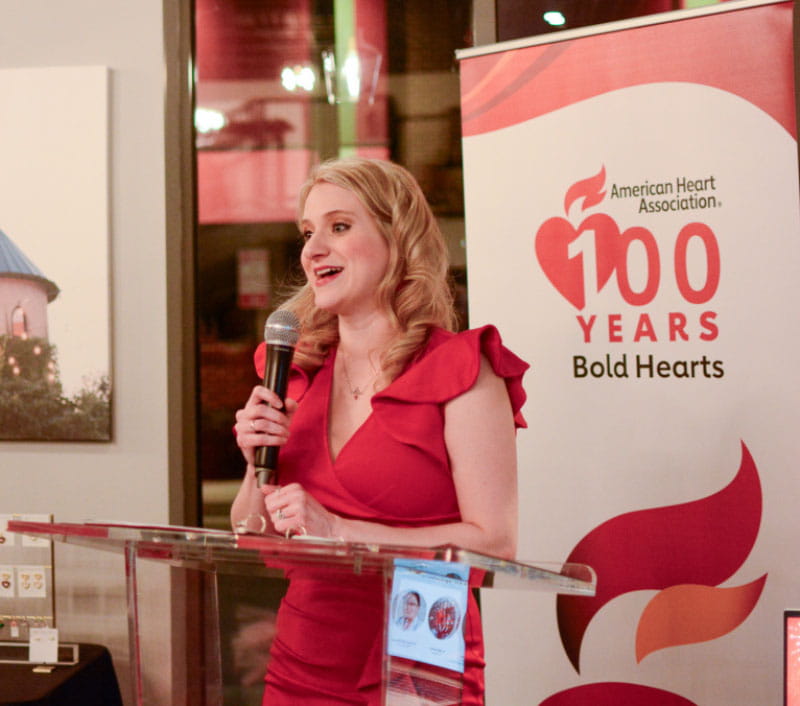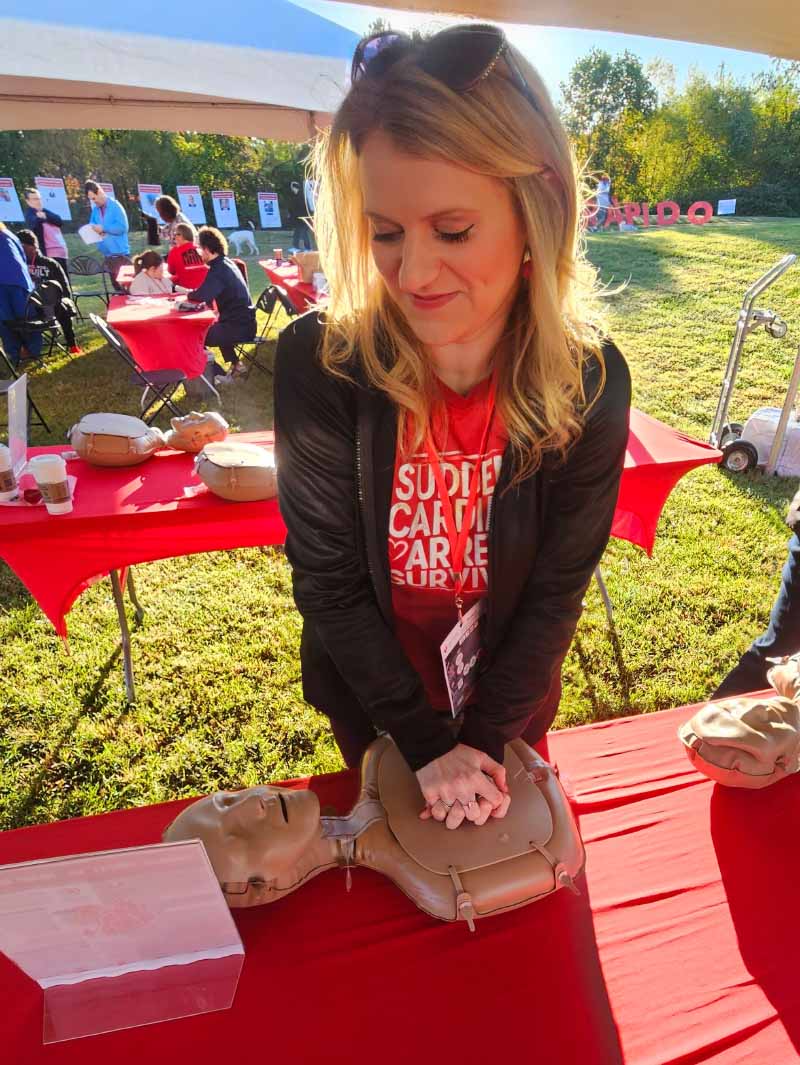Husband finds wife face down in the bathroom. Her heart had stopped.
By Diane Daniel, American Heart Association News

Brooke Jones went through two years of infertility before finally becoming pregnant at 34.
Always an anxious person, her worries rose "to another level" as she went through her pregnancy, delivery and early parenthood during the COVID-19 pandemic.
If someone so much as coughed near Jones, it could send her into an emotional tailspin. And that was before her daughter, Reese, arrived.
"I was so obsessed with Reese that I wrote down everything she did every second of the day," Jones said. And although she said that her husband, Rob Jones, was a capable, hands-on father, "I had to be in control of everything. I couldn't even sleep because I was watching her breathe."
Brooke – who lives in Chester, Virginia, near Richmond – started drinking more coffee to help her stay awake. She got professional help for postpartum anxiety but still struggled. She had several panic attacks.
On a Sunday in late November 2021, then-35-year-old Brooke had a friend over to meet Reese while Rob and a buddy watched a football game on TV. After her friend left, Brooke took Reese to the bedroom.
She later texted Rob that she didn't feel well. She was overheated, had chest pain, shortness of breath and was sick to her stomach.
When Rob went to check on her, he found Reese in her bassinet and Brooke on the floor of the bathroom. She was fanning herself and pulling off her clothes because she was so hot.
Rob thought she was probably coming down with some bug. He went back out to the living room to rush out his friend. He also called his mom, who lives across the street.
Within a minute, he went back to check on Brooke. He found her face down on the shower floor.
"Brooke, what are you doing there?" said Rob, still on the phone.
When she didn't reply, he rolled her over. Her skin was gray, and she was foaming at the mouth. He could tell she wasn't breathing.
"Mom, get over here now!" he said. "Something's wrong with Brooke!"
He then called 911. The dispatcher talked him through delivering chest compressions while his mother took care of Reese.
Rob had never performed CPR. But with the dispatcher coaching him to follow the beat of "Stayin' Alive" by the Bee Gees, he kept going for a full seven minutes before the EMTs arrived and took over.

Brooke's heart was in a rhythm that does not respond to an automated external defibrillator, or AED. Only CPR could help. Responders finally managed to get a light pulse.
At the hospital, doctors said Brooke had two more episodes of cardiac arrest, which is caused by faulty electrical currents in the heart. She was placed in an induced coma to let her body heal from the trauma and to minimize brain damage.
"We don't know if she'll make it or what her brain capacity is," a cardiologist told Rob.
Because COVID-19 regulations were still in place, only Rob was allowed in the hospital. He sat by Brooke's bedside and talked to her all day. A priest came in to pray for her.
After two days, Brooke was brought out of the coma. She was disoriented and couldn't speak because she was connected to a ventilator.
She gestured that she wanted to write. With a pen and paper, she wrote "COVID?" assuming that was the reason she was hospitalized.
"No babe," Rob said. "It was your heart."
Based on more exchanges, it was obvious that Brooke's cognitive functioning was normal.
After running tests for several more days, doctors told Brooke that the cardiac arrests were caused by a sudden onset condition that caused a coronary artery to collapse, disrupting blood flow to her heart.
They thought it was likely due to a combination of factors – anxiety, lack of sleep, caffeine intake, a low potassium level, postpartum hormones and the use of an inhaler for her asthma, which can increase cardiac risk.
Because of the type of cardiac problem she had, Brooke was not a candidate for an implantable cardioverter defibrillator, or ICD. She takes medication to help her blood flow normally.
Brooke calls Rob her hero, and credits him with saving her life. However, while he believes it took a perfect storm of events to cause her heart to stop and thus is unlikely to happen again, she's not so sure.
"It makes you feel so vulnerable," she said. "I never feel like I'm 100% safe."
She struggles with post-traumatic stress disorder, anxiety and panic attacks. She was not able to return to work as a branch manager at a bank.
"I miss my career every day, but I also have this golden opportunity to stay home with Reese," she said. "She's a miracle, and I'm a miracle."
One thing that has helped Brooke heal emotionally is becoming an advocate for heart disease awareness.

"I thought, I need to turn this into something meaningful," she said. "I want my daughter to be proud of me; I want to save lives."
As part of her advocacy work, Brooke has spoken at American Heart Association events. She promotes CPR training and is supporting a state bill to mandate cardiac emergency response plans in Virginia schools.
"I didn't want my heart event to ruin my life, but to guide it and give it a new purpose," she said. "This work helps me take my power back."

Stories From the Heart chronicles the inspiring journeys of heart disease and stroke survivors, caregivers and advocates.





